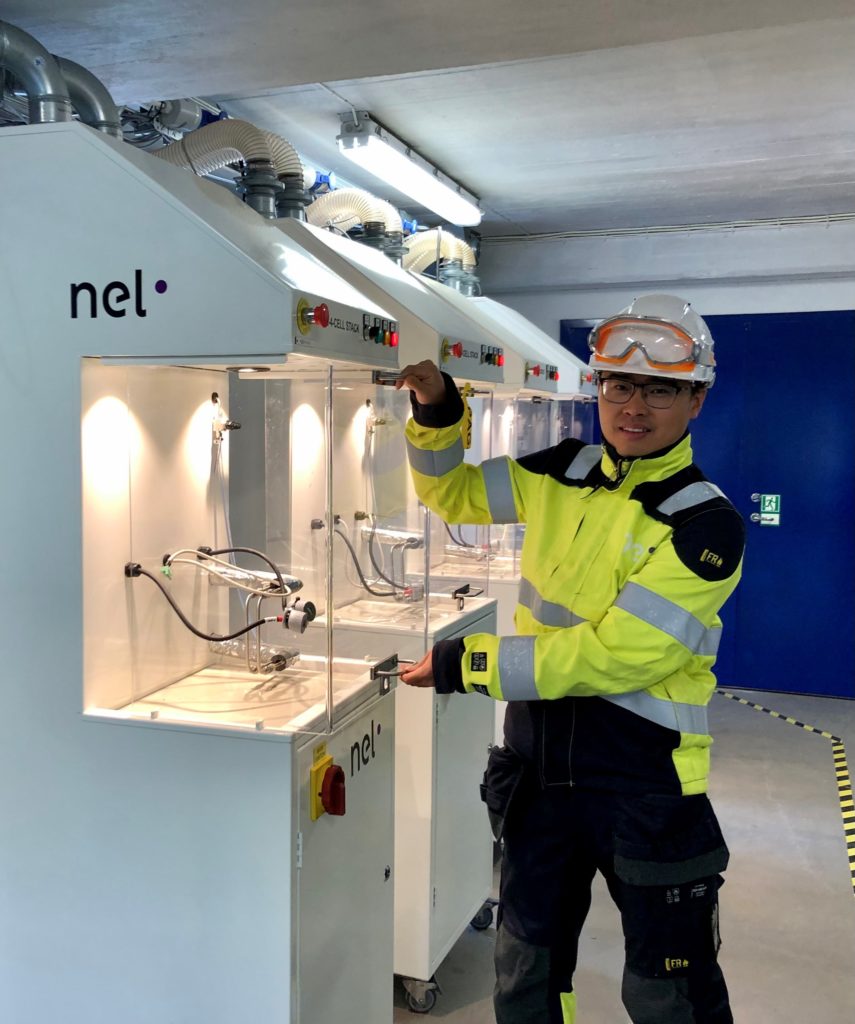We’ve all received those emails that tell us about a “lucky win” or a “great opportunity”. Most of us send them straight to the junk folder. Kaiqi Xu was about to do the same when he saw a message in his inbox a few weeks ago saying he had won the Yara-Birkeland prize for research excellence.
“Then I noticed that the email had come from the University of Oslo. I contacted my [former] supervisor who reminded me I had agreed to have my PhD considered for the prize. I had completely forgotten!” Xu says.
“I designed a device that was inspired by Nel’s proton-exchange membrane (PEM) technology. ”
– Kaiqi Xu, Technologist Electrochemistry at Nel Hydrogen
Water electrolysis powered by the sun
Xu’s PhD research work, which he continues now as a scientist working for Nel, explored the possibility of using the sun’s energy to power water electrolysis. Xu used tantalum nitride, a compound with the rare ability to generate electrical current on exposure to sunlight. Electrocatalysts, which boost chemical reactions, then helped to achieve the splitting of water into hydrogen and oxygen.
“I designed a device that was inspired by Nel’s proton-exchange membrane (PEM) technology. I tried first with hydroxide electrocatalysts, and the process worked. Then I tried with a biocatalyst (enzyme),” he says.
The enzyme in question was formate dehydrogenase, which is commonly found in nature. When used in combination with tantalum nitride, Xu was able to combine hydrogen with CO2 from the atmosphere to produce formic acid.

An award-winning process to help combat climate change
While both the mineral and biocatalyst approaches are still very much theoretical proofs at the moment, the possibility of producing green hydrogen from a process that mimics photosynthesis is clearly exciting. Capturing CO2 is an added benefit in the battle against climate change, and formic acid is widely used throughout the chemicals industry.
Xu comes from a small town around three hours’ train ride to the south of Shanghai in China. The son of a businessman and stay-at-home mother, he says his motivations are both scientific and moral. Scientific because he is fascinated by anything to do with green hydrogen and renewable energy. Moral because he has seen his homeland suffer as a result of climate change.
“This summer in China has been extremely hot everywhere and I want to do what I can to stop climate change, even if it’s only a very small contribution,” Xu says.
Xu, who studied chemical engineering in China and chemistry at the University of Oslo, will formally receive his prize and give a lecture at the Norwegian Academy of Science and Letters on September 20th, 2022. He will also give a lecture on his work as part of the ceremony.